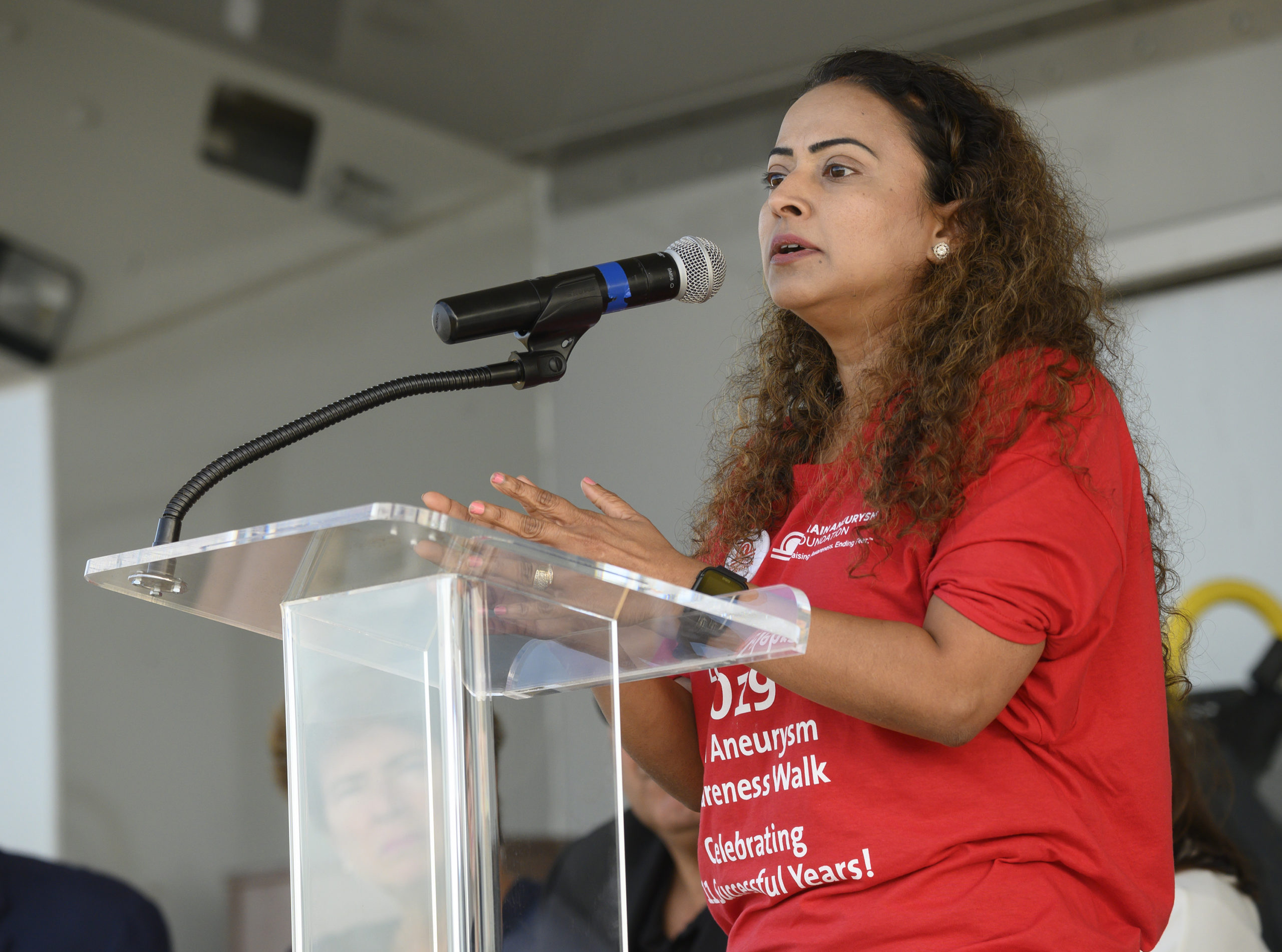What New Hyde Park’s Cynthia Mathis originally wrote off as a typical headache would change her life forever. Mathis, a survivor of a brain aneurysm in March, has a story to tell.
Mathis spoke at Long Island’s 11th annual Brain Aneurysm Awareness Walk on Saturday at Jones Beach State Park. At her speech, she told her story and discussed the lack of awareness about the condition.
“This is my second time attending and I think the brain aneurysm forum and the community online are amazing,” Mathis said. “I was able to read stories and kind of connect. I didn’t feel alone after hearing others share their experiences.”
“It wasn’t a regular headache,” Mathis said in an interview.
Mathis was going about her normal routine in February 2018 when she had a severe headache on the left side. This happened for three weeks, and she began taking Motrin, she said. On the third week, she said she decided to call her internist, who thought it was a sinus infection, and she was given antibiotics.
Toward the end of February, Mathis was at work, where she is an HR manager, and suddenly experienced blurred vision. She called her sister, a nurse at Long Island Jewish Medical Center, who told her to go to the emergency room.
Mathis saw a neurologist at NYU Langone who performed a neurological exam and brain scan, which revealed a brain aneurysm located near the internal carotid artery. Upon receiving the results, Mathis’ husband drove her to the Long Island Jewish Medical Center emergency room and a CT scan was performed, confirming the diagnosis.
“I was terrified. I was broken. Most of the conversation was between my husband, my sister who’s a nurse and the doctor I don’t even remember,” Mathis said.
She said that neurosurgeon Amir Dehdashti, the North Shore University Hospital doctor who clipped her aneurysm, was a major source of inspiration to her during her six-week recovery.
“Dr. Dehdashti is just amazing,” Mathis said. “It was the way he handled the whole thing, he was very compassionate and understanding and explaining and that goes a long way when you’re going through something like that.”
Mathis said that telltale signs of an aneurysm include blurred vision, dizziness and instability, and what feels like an extremely painful headache. She said that she had felt headaches from being a mother.
“This is very different, “ Mathis said. “it was isolated on one side and it was a very sharp and stabbing pain that wouldn’t just go away.”
“Even when they use the term ‘brain aneurysm’ it didn’t really resonate with me like you would with cancer,” Mathis said. “The awareness is not there.”



